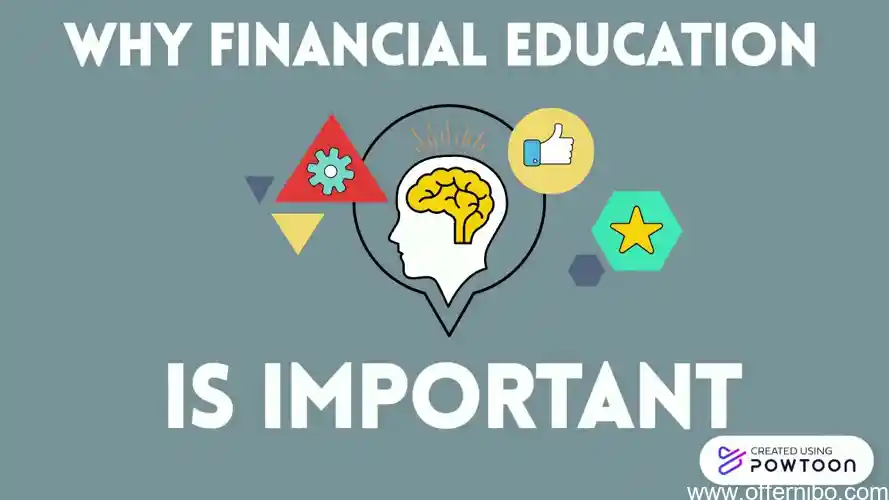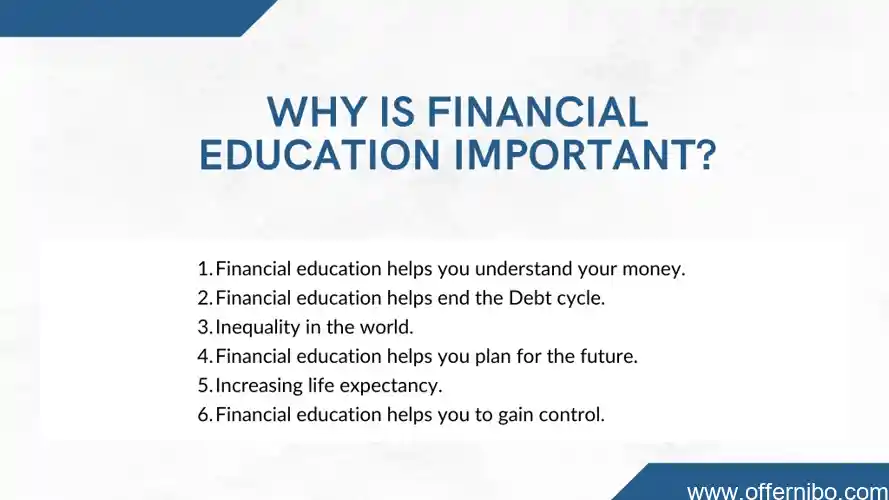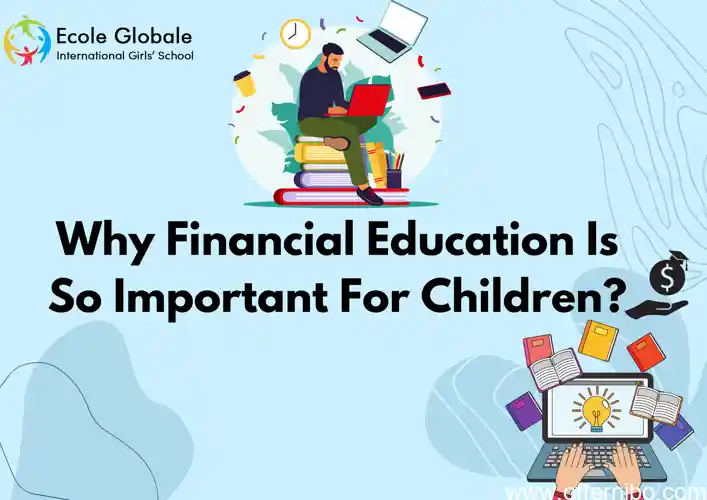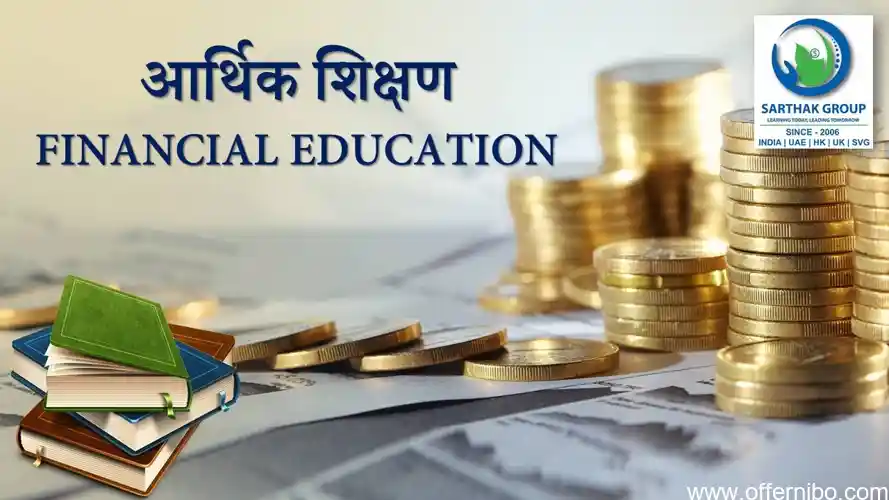In today’s rapidly evolving financial landscape, it is crucial that we arm ourselves with the knowledge and skills necessary to navigate the complexities of personal finance. Financial education empowers us to make informed decisions about our money, plan for the future, and achieve our financial goals. It is a vital tool for individuals seeking economic well-being and a secure financial future.Understanding the fundamentals of finance allows us to budget effectively, manage debt responsibly, and invest wisely. It is the key to financial freedom, enabling us to control our finances rather than being controlled by them. By embracing financial literacy, we gain the confidence to make sound decisions, minimize financial risks, and maximize our financial returns.The absence of financial education can have dire consequences, leading to financial distress, debt, and reduced economic opportunities. It is a social imperative to ensure that individuals have access to financial education, empowering them to take charge of their financial well-being and contribute to the overall prosperity of our society. By investing in financial literacy, we invest in our future, ensuring that we are equipped to navigate the financial challenges and opportunities that lie ahead.
Decoding the Significance of Financial Literacy

Financial literacy, the cornerstone of financial well-being, empowers us to make informed decisions about our money. It’s not just about understanding investment strategies or navigating complex financial instruments; it’s about gaining control over your financial life. By deciphering the significance of financial literacy, we unlock a world of opportunities and equip ourselves with the tools to build a financially secure future. It’s like having a financial compass guiding us through the complexities of managing our finances, ensuring we make choices that align with our goals and aspirations.
Unveiling the Hidden Power of Financial Knowledge

At its core, financial literacy is akin to a superpower, empowering us to navigate the complexities of our financial landscapes with confidence. It illuminates the path to economic stability and fulfillment, equipping us with the tools to make sound financial decisions, secure our financial futures, and confidently take control of our financial well-being. Financial knowledge is not merely about managing money but also about understanding the intricate web of financial systems, strategies, and opportunities. When we possess this knowledge, we gain the ability to make informed choices, safeguard our financial interests, and achieve the financial goals we set for ourselves and our loved ones.
Breaking Down the Barriers to Financial Education

Breaking down the barriers to financial education is paramount to empowering individuals and fostering financial well-being. Obstacles like lack of access to educational resources, cultural stigmas, and systemic disparities can hinder financial literacy. By addressing these barriers, we unlock the potential for a financially literate society. Tailored educational programs, community outreach initiatives, and inclusive financial products can effectively break down these barriers, paving the way for a more financially secure future.
Illuminating the Pathway to Financial Success

Embark on a journey to unveil the secret weapon in your financial arsenal: financial education. It’s the compass that guides you through the treacherous waters of financial decision-making, empowering you to make informed choices that can shape your economic destiny. Consider your finances like a complex puzzle; financial literacy is the key that unlocks the hidden solutions, revealing a path to prosperity and peace of mind.
Empowering Individuals with Essential Financial Skills
Financial education plays a crucial role in illuminating the pathway to financial success. It empowers us with the essential skills and knowledge to navigate the complex world of finance and make informed decisions that can secure our financial well-being. Just as a compass guides a traveler through uncharted territory, financial literacy provides us with the framework to navigate the financial landscape, making informed choices that can lead us to a brighter financial future. Without it, we may find ourselves lost and vulnerable, unable to make prudent financial decisions that can protect and grow our hard-earned wealth
Creating a Foundation for Economic Well-being
Financial education is the cornerstone for navigating the complexities of modern finance. It empowers you to make informed decisions about your money, paving the way for long-term financial well-being. Think of it as a financial compass, guiding you towards a brighter financial future. Financial literacy equips you with the knowledge and skills to manage your money wisely, build wealth, and secure your financial goals. It’s not merely about understanding financial jargon or investment strategies; it’s about knowing how to manage your cash flow, budget effectively, and make informed decisions about your financial future.
Championing the Cause for Financial Literacy
As we navigate the complexities of modern finance, it becomes increasingly imperative for us to be armed with the knowledge and skills that empower us to make informed decisions. Financial literacy isn’t just a buzzword; it’s the key to unlocking a brighter financial future, both for ourselves and for generations to come. By championing the cause for financial education, we open doors to a world where everyone can participate in the economy with confidence and resilience, creating a ripple effect that transforms lives and communities.
Q1. Why is financial education important?
Ans: Financial education equips individuals with the knowledge, skills, and confidence to make informed financial decisions.
Q2. What are the benefits of financial education?
Ans: Financial education empowers individuals to manage their money effectively, plan for the future, and achieve financial security.
Q3. Why should I invest in financial education?
Ans: Investing in financial education provides a lifetime of benefits, including increased earnings potential, reduced financial stress, and greater confidence in managing money.
Q4. How can I improve my financial literacy?
Ans: Attend financial literacy workshops, read books and articles, and seek professional advice from a certified financial planner.
Q5. What are the consequences of poor financial education?
Ans: Poor financial education can lead to financial instability, debt, and missed opportunities for growth and security.
Q6. How does financial education benefit society?
Ans: Financial education promotes economic stability, reduces poverty, and fosters a financially responsible and informed citizenry.